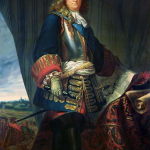The easy answer to ‘how do I capture information about various fictional geopolitical entities’ is to make a list. I like lists. This was my first draft:
Organization Name
Flag
Colors
Coin Name 1
Coin Name 2
Coin Name 3
Religion, Primary
Religion(s), Other
Language, Primary
Language(s), Other
State Nickname 1 State Nickname 2
Which in practice translated into a text doc full of entries like this:
I. GAELUS PACT
“The Old Republics”
“Greenies”FLAG: Green cross with nimbus on white background
COLORS: Green & white
MAJOR CITIES: Caer Denis, Caer Jule
ETHNIC MAKE-UP: PIKS (55%), JUARO (25%), NAHR (10%), KADDIM VADESH (5%)
PRIMARY CURRENCY: Gold lairds, silver gryffids, copper bittins
MAJOR RELIGION(S): Paganism, Way of the Three Sisters, Occult philosophy
And this is what I’ve relied upon during the drafting of WITCH and HEIST. Simplicity means I can dedicate more time to actually writing. But I’m not satisfied. I continue to experiment with maps, but the software I’ve discovered is either too primitive or prohibitively expensive. Which is a pity.
A well-done map fires my imagination like little else.

